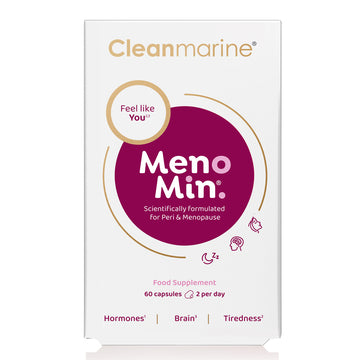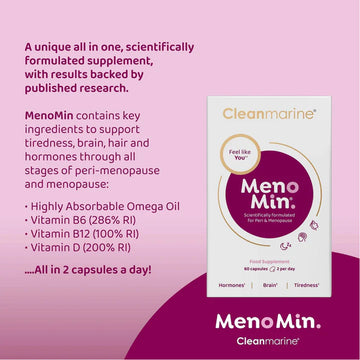From our early to mid-forties changes can start to happen in our hormone health.
Our periods can be heavier, more erratic, less frequent, our mood can drop around this time and skin can become drier too. These can all be warning signs that oestrogen is starting to decrease. This is totally normal and there are lots of things to do to support our bodies through this stage.
First, what does menopause mean?
Menopause means you haven’t had your period in a year, the average age in Ireland is 51 years when a woman experiences this cessation. The 5-10 years before this stage where the hormones are in decline are called perimenopause and can begin from early to mid-40’s. This is good to know as we can be on the lookout for early signs.
How long does menopause last for?
Again, it can vary from woman to women but anything from 2-8 years!
What is responsible behind the scenes for these changes?
Oestrogen is the hormone along with progesterone that are produced in a women hormonal cycle in the reproductive years, as Menopause approaches these hormones start to decline, which can have many effects. It impacts everything from fat production and distribution, appetite hormones and thyroid function to energy levels, sleep, mood, inflammation. Oestrogen also helps manage cholesterol levels and keeps artery walls healthy. Cholesterol levels can increase at this time. This is important to knowing our cholesterol levels, knowing this information allows us to act on it. Regular health checks to know your cholesterol levels and bone scans are advised.
When we think of Menopause, we firstly think of negative stories told to us by friends and family members about hot flushes and night sweats and some negative associations. There are many other symptoms we can attribute to menopause and this decline in hormones. There are also positive we can take from this time too. In Chinese the word ‘Menopause’ means my second spring - this is a time of wisdom and knowledge for women, when their period stops its signals as sense of freedom, their child rearing years are behind them. They do not get a myriad of negative symptoms associated with Menopause which adds to their positive feelings about this stage in life. This is down to a mixture of environmental, dietary and genetic factors. We could look at this time to start something new - yoga, painting, a craft, an online course in something we have being putting off for years.
This stage is a great time to change things in our diet and lifestyle.
Eating lots of fruits and vegetables, ones which are brightly coloured and in season, increase foods containing phytoestrogens such as kidney beans, soya, chickpeas and wholegrain cereals, good sources of protein and ‘good’ fats, exercising particularly weight bearing exercises, practicing good sleep habits (no more scrolling social media in bed!), and reducing stress. All help prevent a negative risk factors, keeping you healthy.
Menopause symptoms can also bring about extra stress. Stress can cause extra adrenaline and cortisol to be released and further affect hormone levels negatively. Look at activities to reduce stress, like meditation, writing lists and journaling.
There are lots of different options every woman can try.
You can speak with your GP or a medical professional who can advise what may be right for you.
You can also consider a supplement such as Cleanmarine MenoMin; which is rich in Omega-3 with Phospholipids, Vitamins B1, B2, B6, B12 and D3, as well as Rosemary Extract, Soy Isoflavones, Folate and Biotin. With Vitamin B6 to help regulate hormonal activity, biotin to help maintain normal mucous membranes, as well as Vitamin B2 to reduce tiredness and fatigue and Vitamin D to help maintain healthy normal bones.















